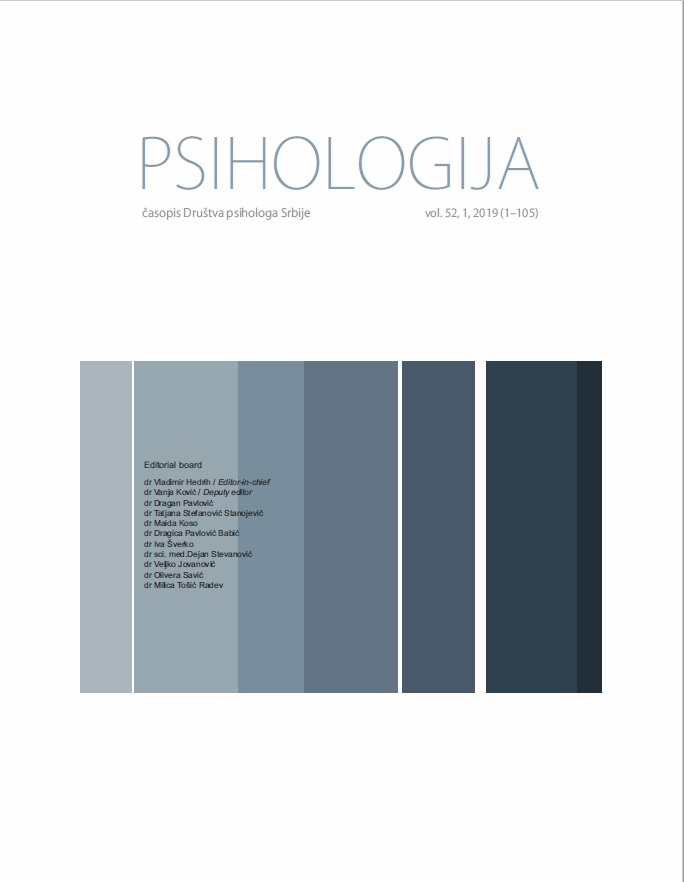The role of self-control, self-efficacy, metacognition, and motivation in predicting school achievement
The role of self-control, self-efficacy, metacognition, and motivation in predicting school achievement
Author(s): Vladimir Džinović, Rajka Đević, Ivana ĐerićSubject(s): Educational Psychology, Cognitive Psychology
Published by: Društvo psihologa Srbije
Keywords: self-control;self-efficacy;metacognitive self-regulation;regulatory stiles of motivation;school achievement;
Summary/Abstract: Self-control and self-regulated learning refer to those processes and strategies whereby individuals exert agency in facing educational demands. This study tested a structural model which predicts that self-control has direct effect on school achievement, as well as mediated by metacognitive self-regulation, academic self-efficacy, and regulatory motivational styles as the variables related to self-regulated learning. The research was carried out on a stratified random sample of 575 eighth grade students. It was shown that the effect of self-control on achievement is mediated by self-efficacy. In other words, students who have heightened selfcontrol and believe in their own ability to meet school demands will be successful in school regardless of the complexity of their learning or whether they are autonomously motivated. The implications of such a finding were considered, as well as the limitations of the research and the indications for future research. [Project of the Serbian Ministry of Education, Science and Technological Development, Grant no. 179034: From Encouraging Initiative, Cooperation and Creativity in Education to New Roles and Identities in Society and Grant no. 47008: Improving the Quality and Accessibility of Education in Modernization Processes in Serbia]
Journal: Psihologija
- Issue Year: 52/2019
- Issue No: 1
- Page Range: 35-52
- Page Count: 18
- Language: English

